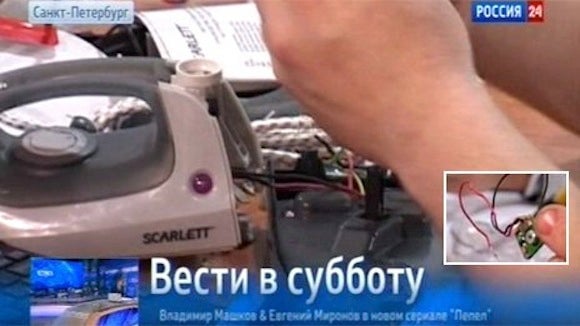21st century spy games have spread to your laundry
The post-Snowden era is forcing everyone to come to grips with the constant surveillance employed by governments of all stripes. Well, not everyone. If you believe the official government line, we’re all just being paranoid.


The post-Snowden era is forcing everyone to come to grips with the constant surveillance employed by governments of all stripes. Well, not everyone. If you believe the official government line, we’re all just being paranoid.
What we do know, though, is that the accusations are flying. Last week, it was the US listening in on German Chancellor Angela Merkel’s cell phone. Now, French and Spanish newspapers have accused the US’s National Security Agency of spying on their citizens, reports the Washington Post. A US general disputes this, though, saying that French and Spanish intelligence agencies were listening in on their citizens’ phone calls, and passing the “metadata” on to the NSA.
The general’s testimony also revealed that Germany’s intelligence service “inadvertently turned over a list of 300 phone numbers of US citizens and residents,” as the Post put it, “raising suspicion that Germany was conducting surveillance here.”
Then there’s the chilling discovery made by attendees of the Group of 20 summit near St. Petersburg last month. After submitting the souvenirs from his Russia G20 gift bag for technical analysis, Belgian Herman Van Rompuy, president of the European Council, discovered that the thumb drives and phone-charging cables could be used “for undercover detection of computer data,” reports the Los Angeles Times. The Kremlin has dismissed the allegations, and the European Commission denies “evidence of a problem” with the G20 freebies.
But no one should be too surprised: The United Kingdom’s intelligence agency reportedly bugged electronic devices used by leaders and delegates at the 2009 G20 summit in London.
Bugging obvious devices like thumb-drives, though—what a rookie error. Russia’s just cottoned on to the fact that the country has been infiltrated by Chinese household appliances, according to Russia’s state-owned TV channel, Rossiya 24—like this spy-jacked iron that spews viruses:

To the undoubted horror of Russia’s fastidious dressers, Rossiya 24 found the iron contained a chip capable of planting viruses in any computer on a nearby, unprotected Wi-Fi network as well as a small microphone. At least 30 devices were shipped to retailers before customs blocked Chinese-made appliance shipments, adding that a customs official told the channel that the chips had infiltrated company networks. Apparently, mobile phones imported from China were bugged as well.
In the contest for which global superpower has the shoddiest spycraft, the competition is clearly stiff.